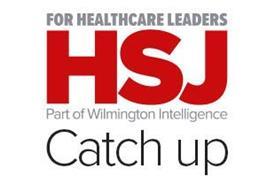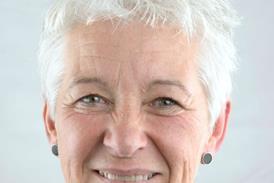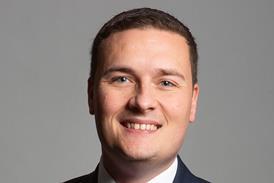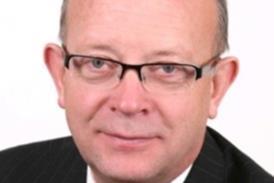Essential insight into NHS matters in the North West of England, with a particular focus on the devolution project in Greater Manchester. By Lawrence Dunhill
Return on investment?
The great hope for the NHS is that huge efficiency savings can be achieved by shifting more care out of hospital and into the community.
But as this recent report by the Nuffield Trust found, it’s pretty rare that these sort of initiatives actually save any money.
In fact, many new measures intended to reduce system-wide costs can often end up costing more, with the report citing “extended access to GPs” as one such example.
So what should we make of Greater Manchester’s recently announced £41m investment in extended GP access?
The money will be spread over five years and come out of the region’s £450m transformation budget.
The general requirement for boroughs seeking a share of this fund has been to demonstrate how their investment can deliver a three-to-one return on investment.
Although the ROI requirement relates to the overall locality plans for each borough, the rising number of GP appointments will clearly be expected to pull their weight.
The early results from Bury (a pilot site for extended access) were positive, with a smaller rise in A&E attendances than the rest of England in its first year.
But a quick analysis of the latest figures, for the third quarter of 2016-17, shows attendances by Bury patients increased by 6 per cent compared to the quarter just before the scheme was launched in 2014-15. Nationally, attendances only increased by 5 per cent, over the same period.
There will of course be all sorts of factors involved, so this is far from a definitive case against extended access, but the figures do not provide the sort of evidence leaders were hoping for.
A recent report produced by the region’s devolution team acknowledges these difficulties, admitting the economic case for seven day access is “unproven” as the evidence so far indicates the “cost to deliver the service outweighs the return on investment”.
Giving up on walk-in centres
As extended GP access is being rolled out in Greater Manchester, commissioners are simultaneously giving up on previous schemes that failed to reduce pressure on A&E.
The planned closure of two walk-in centres in Bury will release savings that can then be reinvested in a redesigned urgent care system, but has caused an inevitable outcry from politicians, campaigners and the public.
So perhaps we should appreciate the political appeal of the extra GP appointments. Although they haven’t released any savings on hospital admissions, at least they’ve given the CCG an alternative offer that the public can easily understand.
With difficult decisions likely to follow over the remaining walk-in centres in Greater Manchester – there are eight across Manchester, Rochdale, Oldham, Tameside, Trafford and Wigan – the £41m investment in extra GP appointments will be a crucial part of the argument.
Any proposals for the centre in Wigan (or Leigh, to be precise) will be worth keeping an eye on. The MP for Leigh just happens to be Andy Burnham, the favourite to be mayor of Greater Manchester.
Opportunity to rationalise
The number of mental health facilities in the region looks set to reduce following the takeover of services in the city of Manchester.
A report to the devolution team said the acquisition of Manchester Mental Health and Social Care Trust by Greater Manchester West Mental Health Foundation Trust would provide “the opportunity to rationalise a significant amount of estate while improving the overall quality of settings”.
Improved facilities would clearly be welcome – some of the current provision is extremely poor – but any reduction in the inpatient bed base would need to be approached with caution.
Culture of fear
Inspectors have described a “culture of fear” within the surgical theatres at a private hospital that largely treats NHS patients in Greater Manchester.
Oaklands Hospital in Salford, which is run by Ramsay Health Care UK and provides surgery, outpatients and diagnostic imaging services, was rated inadequate by the Care Quality Commission after an inspection in October.
Ramsay said it “acted immediately” after the inspection by “standing down the management team and appointing a new team specifically selected to fix all the issues”.
Mega-merger
Another big step forwards in Liverpool, with the announcement that three CCGs will look to merge in April 2018.
The combined commissioner – made up of Liverpool, South Sefton and Southport and Formby CCGs – would be the largest in England in terms of its funding allocation, worth around £1.2bn.
There had previously been hopes of creating a sustainability and transformation plan (and perhaps a single commissioner) for the wider Liverpool city region, which also includes Wirral, St Helen’s, Knowsley and Halton.
The three-way merger wouldn’t necessarily preclude any future deal across the city region, but it certainly makes it feels more remote. The CCGs have made good progress within the smaller “north Mersey” footprint and have done the right thing by ploughing on with what’s achievable.
The Knowsley question
Meanwhile, there’s a tricky decision to be made by Knowsley CCG, which seems to be drawn in two directions. It shares an acute provider with St Helen’s CCG and the two were grouped together for planning purposes last year.
But Knowsley council has a much closer working relationship with the local authorities in Liverpool and Sefton than it does with St Helen’s, which could have a significant impact on the CCG.
This was even noted in Liverpool CCG’s board report, which said: “Given the relationship between Liverpool, Sefton and Knowsley local authorities, the three CCGs have been clear that Knowsley CCG can be part of new joint arrangements in the future.”
The Cheshire question
There will be some similarly complex discussions to be had in Cheshire, where the health boundaries do not fit neatly across the local authorities.
South Cheshire and Vale Royal CCGs already share various functions including an accountable officer, so would be an obvious merger from a health perspective. But South Cheshire sits in the Cheshire East local authority, while Vale Royal in in Cheshire West and Chester.
One solution would be merging all four CCGs in Cheshire (including the West and Eastern CCGs) to create a single commissioner, but this might be unattractive in the West, which may prefer to look towards the Wirral.
Rivalling the golden triangle
With the new Royal Liverpool Hospital likely to open at some point in 2017-18, and plans for a huge biocampus on the current site, health leaders are rightly excited about the prospect of bringing more clinical research to the city, and all the offshoot benefits that would bring.
There was a significant setback last year, however, when a major funding bid to the National Institute of Health Research was unsuccessful.
Liverpool University, in partnership with the hospital, wanted £15m to fully fund a biomedical research centre focussed on pancreas and digestive diseases; cancer therapeutics; and infectious diseases.
The NIHR only runs these bidding processes every five years, and there had been very high hopes for the bid.
As a result, a full review of clinical research in the city has been commissioned, which is being carried out by professors Rosalind Smyth and Stephen Holgate.
Hopefully this will help leaders create the right balance to truly rival the “golden triangle” research centres in London, Cambridge and Oxford.
More delays?
There have been a series of issues with the building work on the new Royal Liverpool Hospital, and the last completion date agreed by construction firm Carillion was June 2017.
I’m hearing that there have been some further delays, however, and we can expect a formal announcement in the next week or so.
North by North West takes an in-depth fortnightly look at one of the NHS’s most challenged and innovative regions. There will be a particular focus on the devolution experiment in Greater Manchester, but my scope will also include Merseyside, Lancashire, Cheshire and Cumbria.
Please get in touch to let me know how I can improve it, and to tip me off about stories you think I should cover: lawrence.dunhill@emap.com. If someone forwarded this to you, sign up to get your own copy here.
Downloads
Pennine Acute report
PDF, Size 1.23 mb
Topics
- Acute care
- Care UK
- Community services
- EAST CHESHIRE NHS TRUST
- Finance
- GREATER MANCHESTER MENTAL HEALTH NHS FOUNDATION TRUST
- Leadership
- Manchester devolution plan
- NHS Bury CCG
- NHS Central Manchester CCG
- NHS Eastern Cheshire CCG
- NHS Knowsley CCG
- NHS Liverpool CCG
- NHS North Manchester CCG
- NHS South Cheshire CCG
- NHS South Manchester CCG
- NHS South Sefton CCG
- NHS Southport and Formby CCG
- NHS Vale Royal CCG
- NHS West Cheshire CCG
- North West
- Primary care
- Ramsay Health Care
- ROYAL LIVERPOOL AND BROADGREEN UNIVERSITY HOSPITALS NHS TRUST
- Service redesign
- Seven day working
- Sustainability and transformation plans (STPs)
- UNIVERSITY HOSPITAL OF SOUTH MANCHESTER NHS FOUNDATION TRUST
- UNIVERSITY HOSPITALS OF MORECAMBE BAY NHS TRUST
- Warrington and Halton Hospitals NHS Foundation Trust




























No comments yet